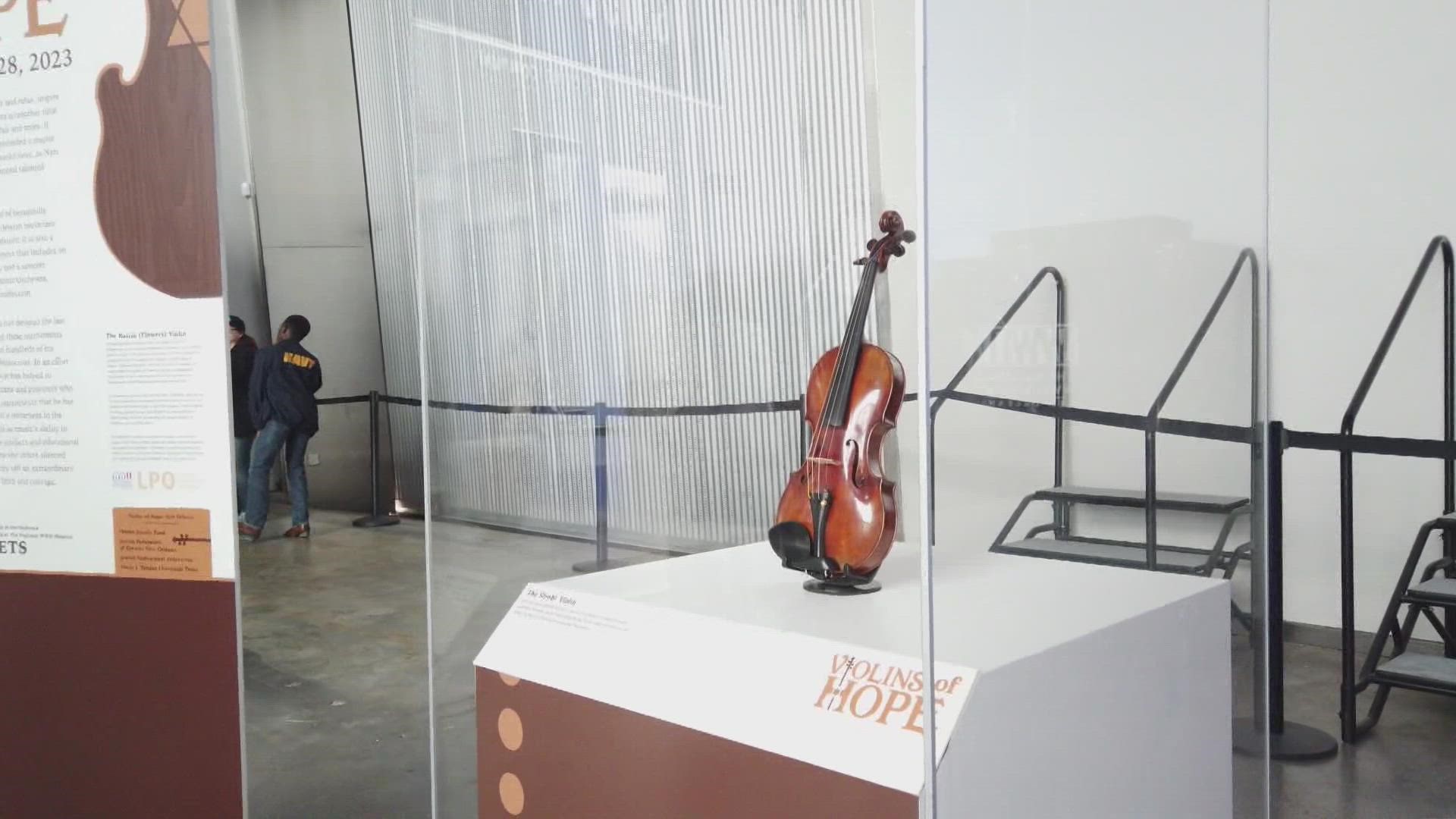NEW ORLEANS — In a workshop on the other side of the world, one man has been working for years to restore relics, one by one, from World War II.
And now some of those treasures are here in New Orleans for International Holocaust Remembrance Week.
And now, that man and his son have a vision. Their goal is to have violins from Jewish musicians in the Holocaust, played around the world. It's their way to give a voice to those whose voices were lost.
“I didn't know anything about it which was very unusual, because I grew up in a house where I was exposed to what the Holocaust was since I was a little child,” said volunteer Ana Gershanik.
Like so many others, she and her husband Dr. Juan Gershanik, didn't know about the Violins Of Hope, but after nearly five years of volunteer work with the World War II Museum, The Louisiana Philharmonic Orchestra, and the Jewish Federation of Greater New Orleans, their stories have come to the city.
“It is so important to remember these people, because I felt like they died for us,” said Ana Gershanik.
Five of the more than 100 violins are on display at the World War II Museum this Holocaust Remembrance Week. Avshi Weinstein, of Istanbul, is telling the story of his father, and late grandfather, and their connections to saving, or restoring violins played by Jewish musicians in concentration camps.
“Everybody knows about Second World War and the Holocaust, but they don't know the part of the music in it,” said Weinstein.
In some cases, violinists were forced to play at the camps to hide their purpose, or at Nazi officer gatherings. In many cases, the violin was the reason its owner survived.
“I just learned how music was used as a way of bringing people together during such a tough time.” Imani Johnson, an LSU Health student said.
Along with concerts and lectures, this story will be told in some local schools.
“I think that children are the most important part of our message at this time, so they will be able to understand and do what they can so this won't happen anymore,” said sponsor Dr. Juan Gershanik.
Weinstein also emphasized the importance of educating future generations.
“I hope so in school is that they don't just get statistics. They get the personal stories that makes the statistics. We have to know our history in order not to make the same mistakes in the past,” said Weinstein.
There is a concert and talk Thursday night at the Orpheum and webinar and commemorative program Friday at the museum. This has been so popular, the Saturday night concert is sold out.

